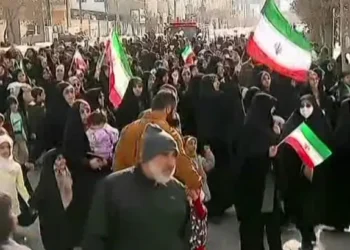Tribal groups argue the Manipur Land Revenue and Land Reforms Act cannot be extended to hill areas without the Hill Areas Committee’s approval under Article 371C.
BY PC Bureau
September 25, 2025 –After the Kuki tribes, Manipur naga community has joined the opposition to a recent Land Resources Department notification. The United Naga Council (UNC) has urged Manipur Governor Ajay Kumar Bhalla to withdraw the notification, warning that it contravenes constitutional safeguards for the hill areas and undermines the traditional tribal landholding system.
The September 18 notification seeks to extend provisions of the Manipur Land Revenue and Land Reforms Act, 1960 to the Hill Areas, prescribing procedures for the sale, purchase, and registration of land. Tribal leaders say this move strikes at the heart of Article 371C of the Constitution, which places all scheduled matters relating to the hill areas under the exclusive purview of the Hill Areas Committee (HAC).
READ: From Robbery to Terror Trail: Why NIA Took Over Manipur Bank Heist Case
In a memorandum to the Governor, the UNC pointed out that the HAC was established under a 1972 Presidential Order by then President V.V. Giri, and that tribal land in the hill districts is traditionally governed by customary practices, with ownership vested in individuals, clans, chiefs, or communities. Only limited stretches in Moreh, Churachandpur, Chandel, and Khoupum valley currently fall under the land reforms law, it noted.
READ: `I Love Muhammad’ Row: India at the Crossroads of Faith and Politics
“There is no law that governs the sale of tribal lands in the hill areas. Making the notification applicable across Manipur without reference to Article 371C is unconstitutional and illegal,” the UNC said, warning of possible “social upheavals and unrest” if the order is implemented.
Tribals Body Raise Alarm Over Manipur Land Notification https://t.co/0PHnJcpctV #ManipurLandRights #TribalLands #VACChurachandpur #Article371C #HillAreas #IndigenousRights
— POWER CORRIDORS (@power_corridors) September 24, 2025
Earlier, the Village Authority Council (VAC) of Churachandpur, representing mainly Kuki-Zo tribes, had also formally rejected the notification. In a statement signed by Chairman H. Mangchinkhup and Secretary Liammuanthang Valte, the council condemned the order as a “blatant and unconstitutional attempt” to erode tribal rights in violation of Article 371C.
The VAC stressed that laws designed for the non-tribal Valley regions are incompatible with the unique land tenure and governance systems of the Hill Areas. Any attempt to impose them without HAC consultation, it said, represents a direct assault on tribal autonomy.
Enacted under the President’s Order of June 20, 1972, Article 371C provides special provisions for the administration of Manipur’s Hill Areas, which house most of the state’s tribal population. It mandates that any legislation impacting tribal land must be vetted by the HAC, a constitutionally mandated body of elected tribal representatives.
By bypassing the HAC, tribal groups argue, the government has violated both constitutional safeguards and political conventions. The VAC emphasized that the HAC’s semi-autonomous status from the state legislature underscores its role as a protector of tribal rights, which cannot be eroded without grave consequences.













